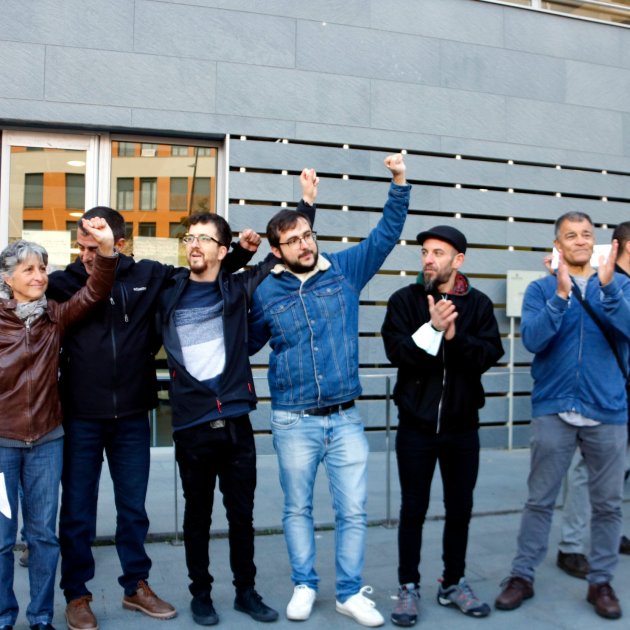The three remaining defendants of the Lledoners Nine pro-independence protesters have been acquitted. They had been charged with public disorder and causing minor injuries in relation to incidents that took place during a protests against the transfer of the Catalan political prisoners from the Lledoners penitentiary in central Catalonia to Madrid in February 2019, prior to the start of their trial in the Supreme Court for the 2017 independence referendum. The public prosecutor had demanded up to 5 years' imprisonment for them, while the Catalan government's own private prosecution sought sentences of six months' jail.
During the two-day trial, the public prosecutor withdrew the accusations of public disorder against six of the nine protesters indicted in the case. The public attorney also reduced the offence of causing injury to a misdemeanor, although the more serious crime of assault on authority was still maintained. In the final stretch of the hearing, the prosecutor dropped the charges for six of the nine. And in response to that, during the final prosecution summing-up, the judge directly acquitted six of the defendants. Today, the other three have also been acquitted.
One of the lawyers published the resolution on Twitter.
"The acquittal shows, once again, that on November 2nd and 3rd we faced a political trial. And it also shows us that organization and mobilization are worthwhile. This legal victory would not have been possible without the mobilization of hundreds of people who have supported us throughout the case," said the support group in a statement. They also complained against the role of the Catalan government in the case, in which it acted as a private prosecutor: "Throughout this case, the Generalitat of Catalonia and the Public Prosecutor's Office gave absolute credibility to a police frame-up." And they add that "the Generalitat and the Public Prosecutor's Office, as in many other independence movement cases, have allied with the Mossos d'Esquadra [Catalan police] who have generated false statements with the goal of repressing the popular independence movement to the point of taking it to court".
The legal group who led the defence, Alerta Solidària, together with the support group denounce that "spending three years awaiting trial, three years living with the possibility of going to prison, is also repression." In the statement, the group demanded "the expulsion from the Mossos d'Esquadra of the officers who staged this set-up with their falsehoods". And they also called for "the expulsion of any officer who generates false statements intended to repress. No other officer must be allowed to have total impunity when it comes to generating false statements!"
The controversial Catalan government prosecution
When the trial started, on November 2nd, defendants were critical of the government of the Generalitat for not withdrawing its accusation. Lawyer Eva Pous, of the Alerta Solidària collective, defence lawyer for some of the protesters, told the court that the case began when the Junts party led the Catalan government and when the other major pro-independence party, ERC, took the reins of the executive, it continued, without the Catalan administration having withdrawn the accusations. Pous complained that the Catalan government not only accused the pro-independence activists of a crime of attacking authority, but also, at that stage, maintained charges of public disorder.
David Aranda, lawyer for one of the defendants, said at the time of the trial that what was at stake was "the right to mobilization and freedom of expression." "It was a grotesque trial," he said. "The Mossos showed selective memory. Unfortunately, [the defendants] were tried only for being in a given place at a given time.
